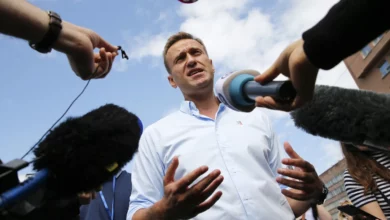Russian Foreign Minister Sergei Lavrov warned the United States and other Western nations on Thursday against imposing unilateral sanctions on Iran over its nuclear program, Interfax news agency reported.
The European Union has said it may impose unilateral sanctions if a UN Security Council resolution fails.
US President Barack Obama’s administration has been lobbying Western companies not to do business with Iran, but has not imposed sanctions against the country.
Countries facing Security Council sanctions “cannot under any circumstances be the subject of one-sided sanctions imposed by one or other government bypassing the Security Council”, Lavrov was quoted as saying by Interfax.
“The position of the United States today does not display understanding of this absolutely clear truth.”
Russia is in talks with the United States and other UN Security Council members on a fourth round of sanctions. Moscow has indicated it could support broader sanctions but has stressed they must not harm the Iranian people.
Washington has not publicly warned of unilateral sanctions but has made clear it wants tougher measures than veto-wielding Security Council member Russia is likely to accept.
Permanent Security Council member China has joined Russia in opposing Washington’s plans to impose tough, wide-ranging sanctions on the Islamic Republic over its refusal to suspend sensitive uranium enrichment activity and open up fully to UN nuclear inspections.
Lavrov’s warning came just before the arrival in Russia on Thursday of President Luiz Inacio Lula da Silva of Brazil, a non-permanent member of the Security Council that is also opposed to further sanctions against Iran.
Lula was expected to meet senior Russian officials on Friday to discuss how to revive a stalled nuclear fuel swap deal meant to minimize the risk of Tehran using enrichment for military purposes. Lula will travel on to Iran on Sunday.
Lavrov, speaking to deputies from Russia’s upper house of parliament, said the United States tended not to see international law as having pre-eminence over national laws.
“We are now confronted with this problem during discussion of a new UN Security Council resolution on Iran.”
Despite his criticism, Lavrov said that relations with the United States had shown clear signs of improvement, specifically with the signing of a nuclear-disarmament treaty that would reduce their deployed nuclear warheads by about 30 percent.
He said the document would soon be submitted to Russia’s parliament for ratification.




